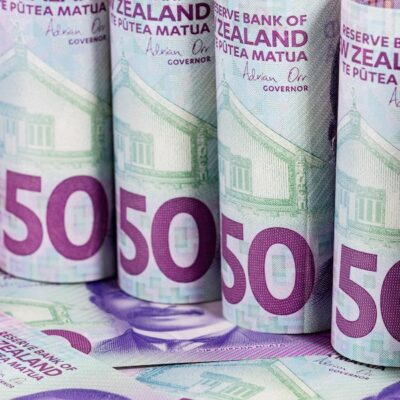New Zealand sole traders report all-time high levels of personal satisfaction
Pictured above: James Fuller, Hnry CEO.
Self-employment could be the ultimate hack in the current cost-of-living crisis, as Kiwi sole traders report the highest rates of well-being, work-life balance, personal satisfaction, and financial outlook since October 2021 in the latest Sole Trader Pulse from Hnry.
Ahead of the 2024 Budget announcement on May 30, accountancy service provider for sole traders, Hnry has released its most recent independent survey of New Zealand’s sole trading sector. The 400,000 strong sector accounts for almost 20 percent of the country’s workforce, and paints a much rosier picture than traditional employees as unemployment rises as economists warn it will hit 5.4 per cent mid next year.
The latest Pulse results are the strongest since Hnry began surveying sole traders in 2021, reflecting resilience in the sector which includes tradies, midwives, doctors, creatives, wellness practitioners and more. Santiago Bernhardt is an IT contractor whose team was ‘nuked’ from a government project. Now, he works with multiple private sector clients and has custom-built his business, which provides him with more security and stability.
“I spent a lot of time considering how to grow my business to become more sustainable instead of relying on just one contract. Now, I have multiple customers and have tailored every contract to benefit the client and me. I work at different levels and have tiered charges for each to reflect what I deliver.
“The freedom and flexibility this gives me is incredible. Being a sole trader means I can also claim for expenses, which you can’t do if you’re employed. When you start doing it properly, the amount of money you can claim for expenses can make a substantial difference,” he says.
The health and wellness sector also shows strong resilience, with people prioritising wellbeing in their budgets. Carl Rein is a Wellington-based personal trainer who says, despite economic pressures, he’s as busy as he’s ever been.
“I think people need an outlet, after Covid many people took an interest in their health and well-being and realised the value of personal training so it’s easier to justify it as an essential in their life. While we’ve had some client turnover, it has been less than usual.”
He says being responsible for himself is a huge benefit in the current economy and provides him with more security.
“I’ve got flexibility. If the gym I currently work at closed, then there are other gyms I could work from. I can also work from home, hire a venue or work remotely – I’ve got options,” he says.
James Fuller, Hnry CEO, says the sole trading sector is also growing.
“We’ve experienced 70 percent growth over the last 12 months, with many former full-time public sector workers entering the contracting workforce after losing their jobs in the government’s cost-cutting drive.
“This incredibly positive sentiment we’re seeing from sole traders could also signal the economy is at the beginning of economic recovery. They’re the first sector to experience a boom or a bust, which we saw last year when sentiment dropped well ahead of the recession,” he says.
Hnry’s latest Sole Trader Pulse also found that Kiwi personal satisfaction, enjoyment, and work-life balance rates were on par with Australian sole traders, who have previously reported higher rates.
The most recent Pulse occurred between March 6th and 20th 2024 and has a margin of error of +/-4.4 percent.







